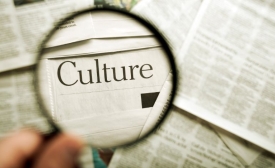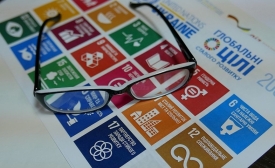sustainable development

This article explores the potential of taking a cultural relations approach to supporting sustainable development.

Jan Melissen and Ries Kamphof look at the opportunity for businesses to participate in the UN's sustainable development goals.
The Fitzgerald Biosphere has retained international significance after United Nations Educational, Scientific and Cultural Organization approved the site as a biosphere reserve this month. [...] Fitzgerald Biosphere spokesman Nathan McQuoid said the area was globally significant for its natural diversity and the renomination will ensure the site continued to be recognized.
At a time when extremism is increasing, when our citizens are questioning their common EU identity more than ever – now is the time to firmly place culture and cultural policies at the heart of the European political agenda. Making 2018 the year of European Cultural Heritage is a first step in the right direction. But the EU should use the positive dynamics created by this initiative to create a concrete strategy and action plan for international cultural relations, including culture as a tool of soft power and promoting it as a pillar of sustainable development.
The third Transform Africa Summit Transform Africa Summit opens today today at the Kigali Convection Centre, attracting about 3,000 delegates. [...] This year's summit's focus is on 'smart cities' with an aim to ensure African capitals embrace technology to effectively deliver services.
'Hard power' can no longer stop conflicts nor the rise of violent extremism and “ancient hatreds” such as antisemitism and racial discrimination, the head of the United Nations cultural agency said today, insisting that “we need 'soft power' of education, knowledge, culture, communication, the sciences, to strengthen the values we share and recognize the destiny we hold in common.”
The Foreign Affairs Ministry will this year spend €251,862.16 on development projects to impoverished countries. The money will be distributed across 12 different projects from local non-governmental development organisations (NGDOs) across Asia, Africa and South America as part of the government’s Official Development Assistance policy.
The other key sphere of concern in Ethiopia's HDR is sustainable development which contains a selection of 15 key indicators that cover environmental, economic and social aspects. Environmental sustainability indicators are basically related to renewable energy consumption, carbon-dioxide emissions, change in forest area and fresh water withdrawals by which Ethiopia has shown a remarkable leap.







